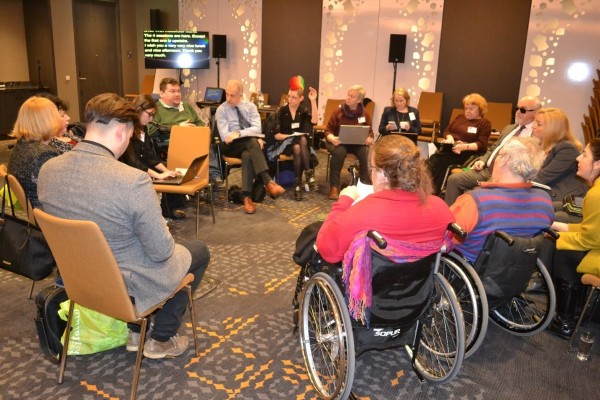By Jay Schulz, NACCHO Health and Disability Fellow
“Being scientific and data-based is the operational definition of caring.” — Dr. Elizabeth Klonoff
Local health departments strive to create communities that are healthy places for everyone to work, live, and play. To create these healthy communities, it is imperative that local health departments understand the health status of the entire community. That is why “assessment” is one of the core functions of public health. Everything local health departments do related to health equity flows from the data, and it is therefore important that the data are inclusive, accurate, and complete. This means that assessments and data collection efforts take into account and address the health status of everyone in the community.
Unfortunately, it appears that sometimes local health departments’ data are incomplete. According to a national survey conducted by NACCHO in 2018, only 48% of health departments indicated that they were even aware of the number of people with disabilities in their jurisdictions. Additionally, only 54% of the local health departments that responded thought people with disabilities are a population that experiences health disparities. This is at odds with national data that indicate people with disabilities are in fact a health disparity population. Finally, 65% of health departments indicated that they engage people with disabilities in their community health assessments. As people with disabilities make up approximately 25% of the population, it is important for local health departments to engage people with disabilities and hear their voices.
Fortunately, there are some strategies local health departments can implement to ensure their data are inclusive of people with disabilities. These strategies can help local health departments begin taking steps toward reducing health inequities experienced by people with disabilities.
- Data Collection: Data should be collected in a way that is inclusive to all members of the community. Surveys should be available in alternative formats (e.g., large print, phone, online) and plain language should be used. People with disabilities should be invited to participate in listening sessions, focus groups, key informant interviews, and community meetings. Steps should be taken to ensure these data collection methods are accessible to everyone. Finally, local health departments can conduct environmental surveys to collect data on the accessibility of their own health departments. This includes looking at clinics that may be attached to health departments and ensuring they have accessories such as adjustable exam tables and wheelchair scales.
- Data Reporting: People with disabilities should be considered their own demographic group when reporting community data. The six standard disability questions from the American Community Survey conducted by the U.S. Census Bureau can aid in the collection of these demographic data. Data on the health outcomes of people with disabilities should be reported, similar to the reporting many local health departments are already doing with other demographics (e.g., race, ethnicity).
There are a number of resources that can be used as a starting point to help local health departments ensure their data are inclusive, that people with disabilities are reported as their own demographic, and that data collection methods are inclusive.
- Disability Counts: The Disability Counts data tool provides population statistics to describe people with disabilities. The Research and Training Center: Rural at the University of Montana developed this tool to simplify accessing data at the county level.
- Disability and Health Data System: The Disability and Health Data System provides state-level data for over 30 health topics on people with disabilities. The Centers for Disease Control and Prevention provide these data using results from the Behavioral Risk Factor Surveillance System.
- A Guide to Planning Accessible Meetings: This website is intended to help people create accessible meetings. The guide can be used by local health departments to ensure their data collection methods such as community forums, focus groups, and listening sessions are inclusive and therefore the experience of people with disabilities is being heard.
To provide quality services for people with disabilities and work toward reducing health inequities for everyone, it is imperative that data collection methods are inclusive of people with disabilities. Local health departments can ensure their data are inclusive and complete by using the above resources and engaging people with disabilities and the organizations that serve them throughout their data collection processes.



